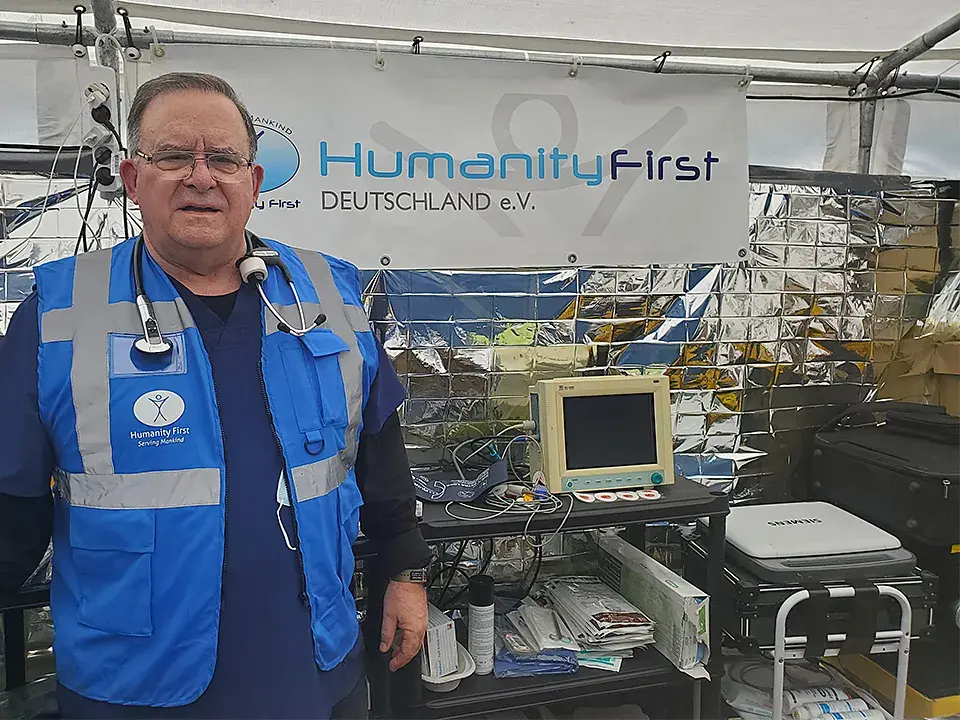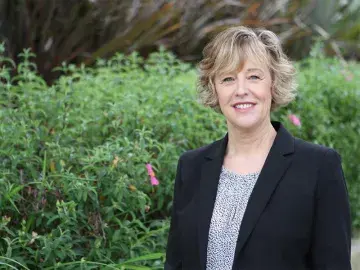SMU Nursing Student Helps Civilians in Ukraine

Doug Stone, ABSN ’20, MSN-FNP ’22, arrived in Medyka, Poland just days after his SMU semester ended in May. Within hours, he started his first shift as the senior medical provider of the local Humanity First aid station at the busiest border crossing for Ukrainian families escaping the war with Russia.
This was not Doug’s first experience in a war zone, and it’s hard to imagine it’ll be his last time answering a call to help people in dire situations. As a retired U.S. Marine Corps Major General, Doug is an innovator and problem solver at heart. Early in his career, he founded three successful Silicon Valley tech start-ups. In the military, he served as deputy commander to General David Petraeus during the 2007 Iraq War troop surge, pioneering ways to rehabilitate violent extremists, and overseeing military hospitals in Iraq. He’s been a paramedic and helped shelter neighbors and care for firefighters impacted by wildfires that threatened his family’s ranch near Sacramento in 2020 and 2021.
Now, 71, Doug wants to become a nurse practitioner and use his experience from Iraq to innovate healthcare. When a colleague put out a call for medical professionals to volunteer in Ukraine, Doug jumped at the opportunity.
The days and nights at the Ukrainian border were long. With limited supplies and support from only a medic and an aid, Doug helped about 50 patients a day. He was there for most of the month and his patients included refugees who struggled without their medications for chronic conditions like diabetes. Others had physical injuries from their arduous travels including burns, muscle strains, exposure, and blisters. They also suffered from cardiac issues, post-traumatic stress disorder, and shock.
Doug thrives during hands-on learning, and SMU clinical classes have been a cornerstone of his education. “My clinicals really prepared me for what I had to do in Ukraine,” says Doug, who will graduate in December. “Whether it was my ER rotations or working in rural clinics in Northern California, it’s the same body of issues around the world.”
Nurse practitioner without borders
Local officials recognized Doug’s medical and leadership skills and asked him to take on a riskier role. He joined a team driving through Ukraine to Kiev, Lviv, Kharkiv, and outside Odessa in a van filled with medical supplies. Their job was to triage patients in towns and bring them to the few operational hospitals or back to the border. Sometimes he’d provide care with procedures at the local hospitals.
“In my FNP program, my preceptors stressed the importance of taking patient histories, and that’s really what I was doing when I was triaging patients in Ukraine,” says Doug. “My teachers taught me that if you take the proper history, you’ll know your diagnosis and have a game plan for exactly what to do. In Ukraine, the local nurses were doing a fantastic job providing care in makeshift medical settings. I’d ask them critical history questions about how long the patient had been there and what treatment they’d received so far, and then we’d know how to proceed.”
One Ukrainian doctor was so impressed by Doug’s work that he authorized him as a “doktor,” so that Doug could work more independently. Doug has the official certificate to show for it and has been invited to return after the war to serve as a Ukrainian doctor.
“I wasn’t acting like a nurse, I was acting like a primary care provider—like I’m being trained to do,” he remembers. “Training in the primary care clinics here in California has taught me so much. To have the confidence to say what I think a patient needs and to go do it, I certainly wouldn’t have felt that way a year ago.”


